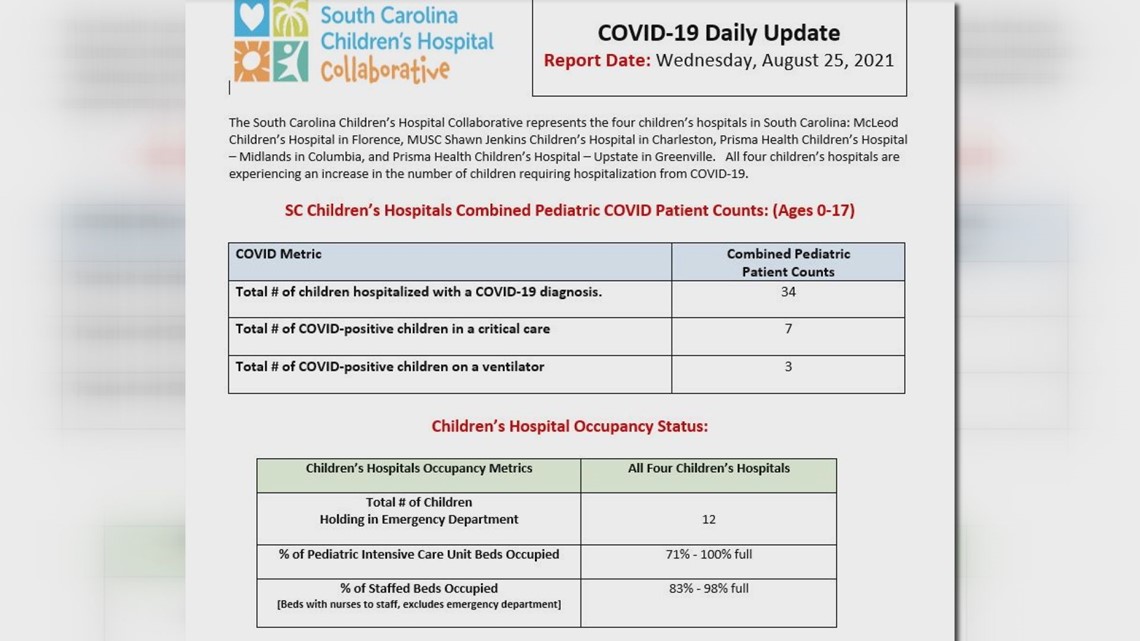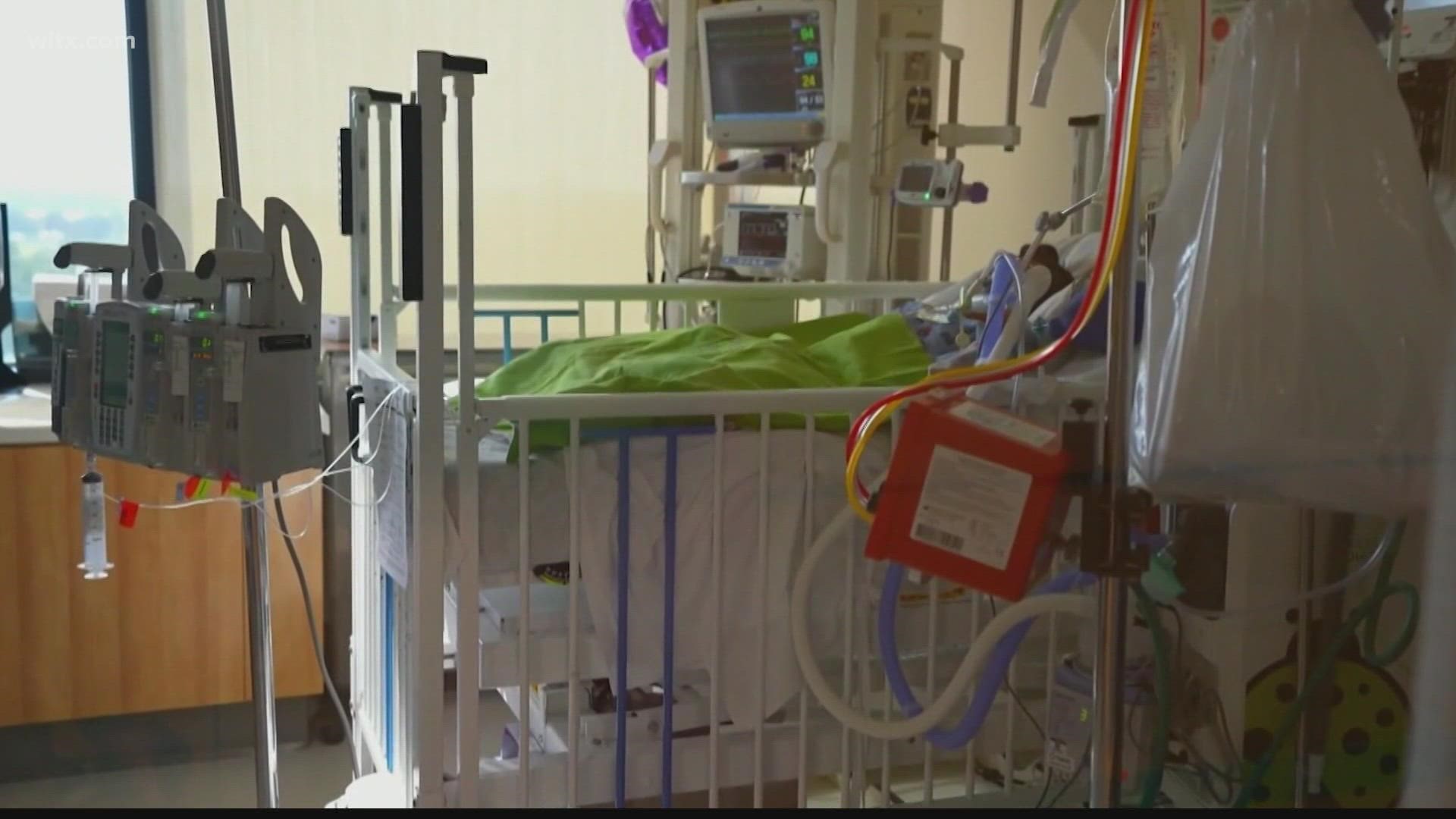COLUMBIA, S.C. — As more children become infected with COVID-19, we're learning more about how the virus can affect their brain.
"We're seeing younger people as a higher proportion of our cases. This is likely due to the fact that they are not eligible or not getting vaccinated," said Dr. Brannon Traxler, DHEC's Director of Public Health.
Pediatric ICUs are also reaching - or at capacity.
As of Wednesday, all pediatric ICUs in the state are between 71 and 100% full. Thirty-four children are hospitalized with COVID-19, seven are in critical care and three are on ventilators fighting the coronavirus.


"We were all on the lookout for these findings from the beginning with both Acute COVID and MIS-C," said Elizabeth Mack, MD, MS., Chief of MUSC Pediatric Critical Care.
Dr. Mack contributed to a study that's part of Overcoming COVID-19, a national registry of patients in 61 hospitals across the nation who are younger than 25 and sick with COVID-19.
Her findings offer a closer look at children with COVID and MIS-C who develop neurological symptoms.
MIS-C is a rare inflammatory disorder that can affect a child's organs and central nervous system following a COVID-19 infection.
"[The study] was really focused on neurological symptoms such as altered consciousness, seizures, difficulty walking, difficulty crawling for the littler ones," said Mack.
The study, published in the Journal of the American Medical Association (JAMA) earlier this year, involved nearly 1,700 children. Dr. Mack discovered that 1 in 5 kids with COVID or MIS-C had effects on their brain.
"I do think the number was still a little bit surprising. 22% of kids - that's a lot of kids, particularly when we're seeing the type of number we are in this state," said Mack. "Our numbers locally I would say also reflect about the same percentage."
Of these cases, 88% of children experienced only temporary symptoms.
"Thankfully most were temporary, but some were serious and even a few were fatal," said Mack. "Although it's possible, most of the time these symptoms were not in isolation. In other words, oftentimes, other organ systems were involved. So it might be their breathing, cardiac function, or their endurance in general which may be a combination of all three of those."
It's unclear why some children developed serious neurological symptoms from COVID and MIS-C and others did not.
The study found most patients with life-threatening neurological complications did not have any major underlying health conditions.
For parents, Dr. Mack says familiar steps can be taken to protect children who are too young to get the vaccine.
"So with hand hygiene, with testing, with vaccination, with masking, with quarantining when it's appropriate," she explained.
To date, MUSC says no therapies have been approved by the FDA to treat neurological diseases from COVID-19 in children or MIS-C.
Dr. Traxler said in a press conference Wednesday that the agency is working to capture and display pediatric hospitalization data on their website. She says she hopes to have these statistics available to the public next week.

